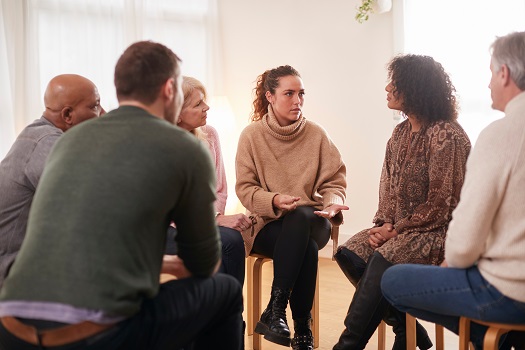Depression is common among stroke survivors. The road to recovery can be long and fraught with challenges, and many seniors also have to adapt to the permanent loss of certain functions. However, there are several things family caregivers can do to alleviate the emotional pressure and pain their elderly loved ones are feeling. With the right strategies, you can help your loved one achieve and maintain a balanced mood alongside a positive and proactive mindset.
Set Small Goals
Many stroke survivors become depressed when their efforts to regain lost functions fail to produce immediate and impressive results. Make sure to celebrate small accomplishments in a big way, and work with your loved one and his or her doctor on setting feasible goals for recovery. Focusing on the progress made rather than accomplishments not yet achieved can help your loved one view his or her rehabilitation in a more positive light.
Encourage Independence
Encourage your loved one to carry out more tasks independently, especially those he or she is capable of handling without assistance. Performing simple yet essential tasks on a daily basis can help your loved one maintain these abilities and also lead to a smoother recovery. Though it helps to have a dedicated caregiver on hand, be careful about taking over activities your loved one is still able to handle independently.
Caring for senior loved ones can be challenging for families who don’t have expertise or professional training in home care, but this challenge doesn’t have to be faced alone. Family caregivers can turn to Home Care Assistance for the help they need. We provide high-quality live-in and respite care as well as comprehensive Alzheimer’s, dementia, stroke, and Parkinson’s care.
Join a Support Group
Acknowledgement and acceptance of lost abilities can mitigate post-stroke depression and help your loved one move forward with determination. Joining a local support group is a great way for your loved one to communicate with others going through similar situations, and it also gives you the chance to share and receive information on local resources for senior stroke support and tips for preventing caregiver burnout.
A home caregiver can help you closely monitor your loved one for signs of depression after a stroke. Families looking for top-rated Anchorage senior home care providers can reach out to Home Care Assistance. From respite care to specialized Alzheimer’s, dementia, stroke, and Parkinson’s care, there are many ways we can make life easier for seniors and their loved ones.
Prevent Caregiver Burnout
Post-stroke depression is common among family caregivers as well, and the disposition you maintain can play a critical role in determining your loved one’s mindset and overall outlook. Reach out for help when you need it, which may include hiring a respite caregiver to relieve you of your duties a few times a week. Sleep well, eat well, and work out regularly. If you stay positive and upbeat, your loved one may follow your example.
Recovering from a stroke, managing the symptoms of Alzheimer’s, and a variety of other health-related situations can make it difficult for a senior to continue living at home without someone there to help. Anchorage, AK, live-in care professionals are trained to help seniors who need 24/7 assistance. With the help of a live-in caregiver, your elderly loved one can maintain a higher quality of life while aging in place. To schedule a free in-home consultation, give us a call at (907) 770-0907 today.
